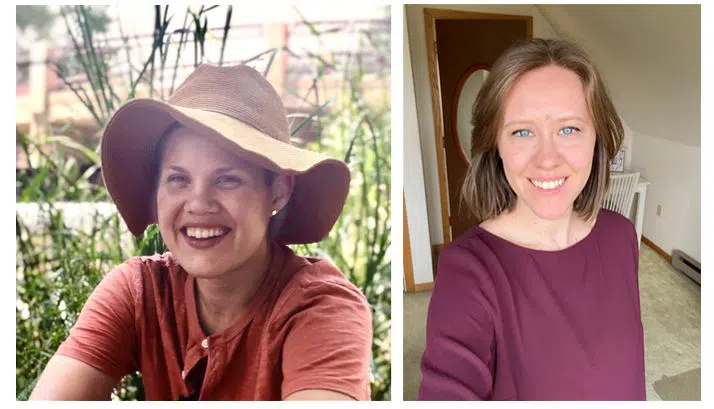PUBLISHED: 3rd January 2022

Will L.
I was diagnosed with a MSH2 mutation at age 32. I had known for a decade that my father had Lynch syndrome, but I had not previously been tested myself. I hadn’t had consistent insurance coverage, medical care, or financial stability. Even when I did see providers—including gastroenterologists—they never encouraged me to pursue genetic testing, despite my family history. My father had been diagnosed with colorectal cancer in his mid-40s, as had my paternal grandfather, and there were a range of other early-onset cancers in my family history as well. I finally asked my primary care provider at the time for a colonoscopy due to ongoing chronic digestive issues and my family history. She told me that it wasn’t medically necessary due to my age and the fact that my first colonoscopy five years prior had been normal. I advocated strongly for the referral for a colonoscopy regardless of her opinion. During the procedure, my gastroenterologist removed a pre-cancerous polyp with high-grade dysplasia. Shortly thereafter, I was genetically tested and received my Lynch syndrome diagnosis. I was told that, due to my genetic mutation, I likely would have developed colon cancer within a year had I not had that preventative screening when I did.
As a queer and nonbinary/trans person, I have needed to learn to advocate for myself within the healthcare system. This skill has become essential in the four years since my diagnosis. Queer and trans people face homophobia and transphobia within the medical field, and our communities are greatly underserved. Our rates of cancer screening are lower, which often leads to our cancers not being detected until more advanced stages. As trans and nonbinary people, we face the frequent experience of medical professionals misgendering us, and we have to navigate an oncology field—including the majority of hereditary cancer resources—that unnecessarily genders the cancer screenings and cancers that we face. The level of self-advocacy needed to manage regular medical appointments and screenings as a queer and trans person (on top of the stress of having a high cancer risk, even without having a cancer diagnosis thus far) has often been an exhausting, lonely, and isolating experience.
Since my diagnosis, it has been hard to find resources that are specifically for me and others like me, making it especially difficult to navigate the intersections of cancer prevention and gender-affirming medical care. I have been privileged to have more supportive healthcare providers since my diagnosis, but finding community with fellow queer and trans people navigating genetic mutations and hereditary cancer has still been a challenge. After nearly four years of searching, I finally reached out to FORCE about starting a virtual support group specifically for LGBTQIA+ people navigating hereditary cancer. Thanks to FORCE’s support and resources, genetic counselor, Maddie and I have been co-hosting monthly gatherings together since July. I also serve as a FORCE Peer Navigator. Our community group is small but growing, and I feel so fortunate to be building connections with fellow queer and trans people so that we can face our high risk levels and/or diagnoses of hereditary cancer together and advocate for the affirming health care that we all need.
Maddie W.
I work as a genetic counselor specializing in adult neurology. While in my training program, I became worried about my own family history of cancer. I had always known that my dad’s mother passed away from pancreatic cancer, but I also learned she had multiple relatives with breast, uterine, kidney and other cancers. I decided to get tested after starting my first job and was surprised to test positive for a mutation in BRCA1. Learning about my mutation came with a variety of emotions, but I felt validated to think that I had found the source of the cancers in my father’s family. I was then thrown a curveball when my father tested negative for BRCA1 and subsequent testing revealed this was something that I inherited from my mother. I had first set out to get tested to find answers, but I only ended up with more questions.
FORCE was one of the resources included in the results packet from my own genetic counselor and I felt immediately drawn to volunteer due to my professional background and now personal connection. I originally joined FORCE as a Research Advocate volunteer and now also help to lead the newly established LGBTQIA+ Virtual Community Meeting along with Will. While I have only been on my hereditary cancer journey for a relatively short time, it didn’t take long to notice the barriers and challenges individuals face while trying to seek appropriate care. I feel infinitely privileged to be a genetic counselor and have the background knowledge that allows me to navigate both hereditary cancer and the medical system at-large. I am also privileged in a number of other ways, including but not limited to: being white, straight-passing, able-bodied, insured through my employer, and located near a large medical center to seek my preventative screenings at. I joined FORCE because of my desire to leverage my unique position as genetic counselor and patient to help others navigate their own hereditary cancer journey. I am proud that FORCE is committed to providing resources specific to groups that are typically underrepresented and/or excluded from hereditary cancer spaces. Participating in the LGBTQIA+ Virtual Community Group has been personally empowering and my hope is that this group and others like it will continue to grow so that everyone facing hereditary cancer can find community in spaces that validate all parts of their identity.